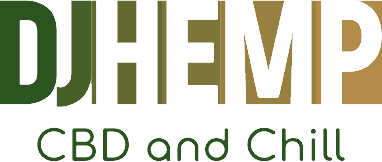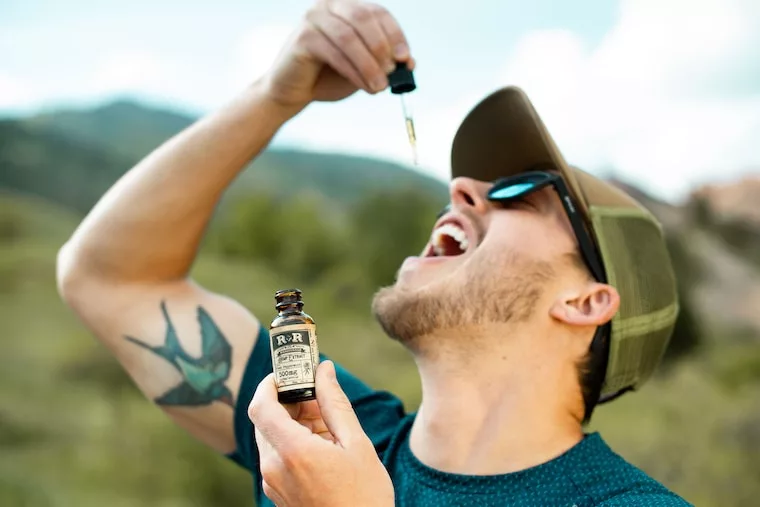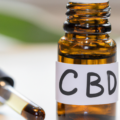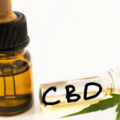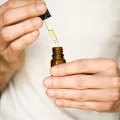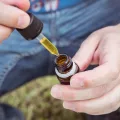If you’re interested in incorporating CBD into your health and wellness routine, the number of options on the market can be overwhelming.
Two of the most popular CBD products are CBD oil and CBD tinctures.
But what’s the difference between the two, and how can you choose the right product for you?
In this article, we’ll explore the differences between CBD oil and CBD tinctures and provide some tips for selecting the right product.
Jump to Section
What is CBD Oil?
CBD oil is a concentrated form of CBD that is extracted from the hemp plant using a variety of methods, including CO2 extraction, ethanol extraction, and olive oil extraction.
The resulting oil is then mixed with a carrier oil, such as MCT oil or hemp seed oil, to make it more bioavailable and easier to consume.
CBD oil typically comes in a dropper bottle, and users can place drops of the oil under their tongue or add it to food and drinks.
This method of consumption is known as sublingual consumption and allows the CBD to be absorbed directly into the bloodstream through the mucous membranes in the mouth.
What is a CBD Tincture?
A CBD tincture is a liquid extract of CBD that is made by soaking CBD-rich hemp flowers in high-proof alcohol or glycerin.
The alcohol or glycerin acts as a solvent, extracting the CBD and other cannabinoids from the plant material.
CBD tinctures often come in a dropper bottle or spray bottle, and users can place drops of the tincture under their tongue or add it to food and drinks.
Like CBD oil, this method of consumption allows the CBD to be absorbed directly into the bloodstream through the mucous membranes in the mouth.
What’s the Difference Between CBD Oil and CBD Tinctures?
CBD oil and CBD tinctures are similar in many ways, but there are a few key differences to be aware of:
- Extraction Method: CBD oil is typically extracted using CO2, ethanol, or olive oil extraction, while CBD tinctures are typically made using alcohol or glycerin extraction.
- Carrier Oil: CBD oil is mixed with a carrier oil, such as MCT oil or hemp seed oil, to make it more bioavailable. CBD tinctures are often mixed with other ingredients, such as flavorings or essential oils.
- Potency: CBD oil is typically more concentrated than CBD tinctures, meaning that you may need to take less of it to achieve the same effects. However, CBD tinctures are often more affordable than CBD oil.
- Taste: CBD oil can have a strong, earthy taste that some people find unpleasant. CBD tinctures are often flavored to make them more palatable.
| Aspect | CBD Oil | CBD Tinctures |
|---|---|---|
| Extraction Method | CO2, ethanol, or olive oil extraction | Alcohol or glycerin extraction |
| Carrier Oil | MCT oil, hemp seed oil, or other carrier oils | Not typically mixed with a carrier oil |
| Other Ingredients | None or minimal | Flavorings, essential oils, or other additives |
| Potency | Higher concentration of CBD | Lower concentration of CBD |
| Taste | Strong, earthy taste | Often flavored to be more palatable |
| Price | Generally more expensive | Often more affordable |
How to Choose the Right Product for You
When choosing between CBD oil and CBD tinctures, there are a few things to consider:
- Potency: If you’re looking for a more potent product, CBD oil may be the way to go. However, if you’re on a budget, a CBD tincture may be a more affordable option.
- Taste: If you’re sensitive to the taste of CBD oil, a flavored CBD tincture may be more palatable.
- Ingredients: Make sure to check the ingredients list before purchasing a CBD product to ensure that it doesn’t contain any additives or preservatives that you may be allergic to.
It’s also important to consider the quality of the product you’re purchasing.
Look for products that have been third-party tested for purity and potency, and choose products made from organic hemp to avoid exposure to pesticides and other harmful chemicals.
CBD Oil vs. CBD Tinctures: Which is Right for You?
Ultimately, the decision between CBD oil and CBD tinctures comes down to personal preference.
Both products offer a convenient and effective way to incorporate CBD into your health and wellness routine, and both have their own unique advantages.
If you’re looking for a more potent product and don’t mind the taste of CBD oil, it may be the way to go.
However, if you’re on a budget or prefer a more palatable product, a flavored CBD tincture may be the better option.
Pros and Cons of CBD Oil
| Pros | Cons |
|---|---|
| More potent | Strong, earthy taste |
| Typically made with organic hemp | Can be more expensive |
| Easy to use | May not be as palatable as other CBD products |
Pros and Cons of CBD Tinctures
| Pros | Cons |
|---|---|
| More affordable | May be less potent than CBD oil |
| Available in a variety of flavors | May contain additives or preservatives |
| Easy to use | May not be as bioavailable as other CBD products |
Frequently Asked Questions
Q: Can I mix CBD oil with my food or drinks?
A: Yes, you can add CBD oil to your food or drinks. However, keep in mind that the bioavailability of CBD may be lower when consumed this way.
Q: Can CBD tinctures get you high?
A: No, CBD tinctures do not contain enough THC to produce psychoactive effects.
Q: Are CBD oil and CBD tinctures legal?
A: Yes, as long as they are derived from hemp and contain less than 0.3% THC.
Q: How much CBD should I take?
A: The optimal CBD dosage varies from person to person and depends on factors such as body weight, metabolism, and the severity of your symptoms.
It’s best to start with a low dose and gradually increase until you achieve the desired effects.
Q: Are there any side effects of using CBD?
A: While CBD is generally considered safe, some people may experience side effects such as dry mouth, dizziness, and fatigue.
It’s important to talk to your doctor before using CBD, especially if you’re taking any medications or have a medical condition.
Sources:
- https://www.medicalnewstoday.com/articles/cbd-oil-vs-cbd-tincture
- https://www.healthline.com/health/cbd-oil-vs-tincture
- https://www.leafly.com/news/cbd/cbd-tincture-vs-oil
I am a CBD enthusiast and creator of DJ Hemp who has made it my mission to enlighten the world about the cannabis industry through thought-provoking literary works.
I have successfully fostered an open-minded, inquisitive community that is eager to learn more about the potential benefits of CBD.
Contact me at [email protected] for assistance.
